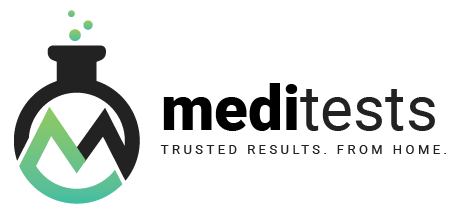Laboratory drug testing plays a critical role in preventing substance abuse and promoting a safe, drug-free workplace. Whether for employment, safety, or legal reasons, drug tests are commonly required across various sectors, including government, private organizations, and healthcare. This guide breaks down how laboratory drug testing works, the processes involved, and how it helps prevent drug abuse and maintain safety.
Why is Drug Testing Important?
Drug abuse is a significant issue in the United States, affecting millions of individuals across all age groups. It is linked to:
- Health issues and long-term side effects from drug use.
- Increased crime rates and juvenile delinquency.
- High financial burdens due to government-funded drug treatment programs (e.g., SAMHSA allocated $3.3 billion in 2005).
- Damage to families, careers, and communities.
Who Needs to Be Tested?
- Job Seekers: Many people are required to pass drug tests when applying for a job.
- Current Employees: Random drug testing is commonly conducted in workplaces to ensure employees are not using drugs that could affect their performance.
- Government Employees: Federal guidelines, such as the Revised Mandatory Guidelines for Federal Workplace Drug Testing, require government agencies to implement drug testing to deter substance abuse.
What Happens After a Drug Test?
Once an initial drug test is completed, the results may show "non-negative" findings. In such cases, the sample undergoes further testing in a certified laboratory to determine if the result is truly positive.
Testing Process Steps
- Initial Immunoassay Testing:
- Samples that show a non-negative result are sent for a second round of testing using immunoassay techniques.
- Confirmatory Testing (GC-MS):
- More advanced techniques like Gas Chromatography and Mass Spectrometry (GC-MS) are used to confirm the presence of specific drugs. These tests offer highly accurate results.
- Results:
- If a result is confirmed as negative, no further testing is needed.
- Positive results undergo additional analysis for substance-specific data.
- Positive results are reported to Medical Review Officers (MROs), who evaluate whether the test results are accurate and if any medical conditions contributed to the outcome.
Standard Confirmatory Test Levels
Below are common thresholds for confirming a positive drug test result, measured in nanograms per milliliter (ng/ml):
- Marijuana: 15 ng/ml
- Cocaine: 150 ng/ml
- Opiates (Morphine/Codeine): 300 ng/ml
- Phencyclidine (PCP): 25 ng/ml
- Amphetamines (Methamphetamine): 500 ng/ml
How Are Test Results Handled?
Role of Medical Review Officers (MROs)
MROs are licensed physicians trained in substance abuse. They interpret the test results and determine whether a positive result is due to drug use or a legitimate medical reason. They also ensure that any potential discrepancies are investigated, and if necessary, a re-test may be ordered.
Privacy and Security
Laboratory drug tests are subject to strict confidentiality and security protocols. Here’s how the process ensures privacy:
- Chain of Custody: Test samples are handled and tracked through secure, standardized procedures.
- Data Protection: All employee test results are kept confidential per legal requirements, including privacy laws like 5 U.S.C. 522a(m) and 48 CFR 24.101-24.104.
- Laboratory Oversight: Laboratories must be regularly audited by the Substance Abuse and Mental Health Services Administration (SAMHSA) to ensure accuracy and compliance with regulations.
Why is Laboratory Drug Testing So Reliable?
The testing process follows rigorous standards at each stage:
- Specimen Collection & Transport: Samples are securely collected and transported to ensure no tampering occurs.
- Analysis & Confirmation: Specimens undergo several rounds of testing to verify results.
- Reporting: Negative results are reported quickly, and positive results are thoroughly analyzed by an MRO.
Benefits of Rigorous Testing
- Accuracy: The multi-step testing process reduces the chances of errors.
- Fairness: Standardized procedures ensure that all individuals are treated equally and fairly.
- Accountability: Each test stage is documented and tracked, ensuring accountability at every step.
Conclusion
Laboratory drug testing services are essential for maintaining a safe and drug-free environment in workplaces, schools, and government agencies. The comprehensive testing process, from specimen collection to result interpretation, ensures the highest level of accuracy and confidentiality, protecting both employees and employers. By following strict procedures and guidelines, these tests help prevent substance abuse and its negative impact on individuals and society.
Key Takeaways:
- Laboratory drug testing helps prevent substance abuse and maintains workplace safety.
- Confirmatory tests like GC-MS ensure accurate drug detection.
- Medical Review Officers (MROs) provide expert interpretation of test results.
- The process follows strict privacy and security protocols to protect individuals' rights.



















































































